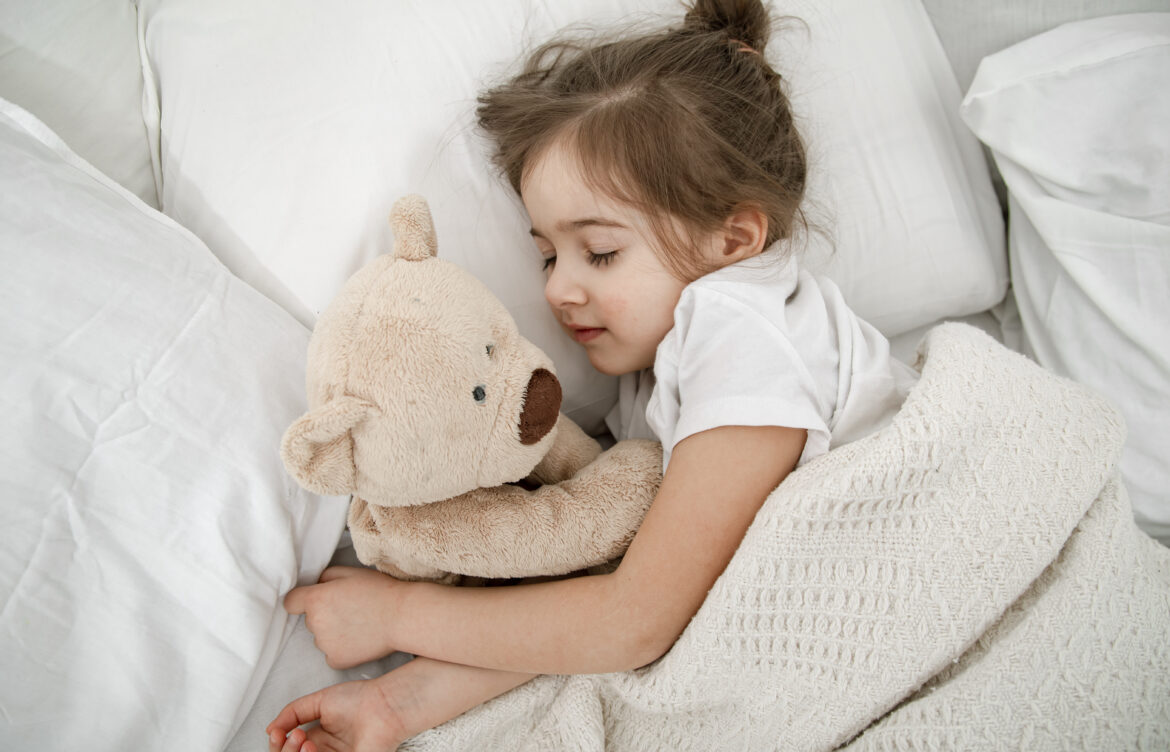
How Allergies Can Affect Your Child’s Sleep (and What You Can Do About It)
Image by pvproductions on Freepik
Sleep is sacred when you’re a parent. It’s the one thing everyone in the house needs, yet rarely gets enough of. And if your child has chronic allergies, you’ve probably noticed that bedtime doesn’t always mean peaceful rest.
From mouth breathing and midnight coughing fits to tossing, turning, and early wake-ups, allergy-related sleep disruptions are more common than many parents realize. But the good news? Once you understand what’s happening—and why—there are real, lasting solutions that can help.
Let’s explore how allergies impact your child’s sleep and what you can do to give them (and yourself) more restful nights.
The Allergy–Sleep Connection: What’s Really Going On
Most of us associate allergies with runny noses, itchy eyes, and sneezing. But at night, allergies can show up in quieter and more disruptive ways.
Children with allergic rhinitis (a condition triggered by environmental allergens like dust mites, pollen, mold, or pet dander) often experience:
- Nasal congestion or blocked noses
- Postnasal drip
- Coughing or throat clearing
- Mouth breathing
- Restless sleep or frequent waking
- Snoring or noisy breathing
Chronic nasal inflammation can interfere with healthy breathing patterns, especially when lying down. And when kids can’t breathe easily through their nose, they don’t get deep, restorative sleep, which affects their mood, focus, and behavior during the day.
Signs Your Child’s Sleep Issues Might Be Allergy-Related
It’s not always obvious that allergies are the cause of poor sleep. Here are a few red flags to look for:
- Your child snores or breathes loudly at night—even without a cold
- They wake up groggy or with dark circles under their eyes
- They breathe through their mouth while sleeping or during the day
- They often rub their nose or eyes, especially in the morning
- They wake up coughing or with a sore throat
- Their sleep worsens in certain seasons or environments (spring, dusty rooms, around pets)
If a few of these sound familiar, allergies could be part of the picture.
Why Better Sleep Matters (Beyond the Obvious)
Lack of quality sleep doesn’t just make kids cranky (though that’s certainly part of it). Research shows that poor sleep in children is linked to:
- Weakened immune systems
- Difficulty concentrating at school
- Behavioral issues like irritability or hyperactivity
- Higher risk of anxiety and mood disorders
The National Institutes of Health also notes that children with untreated allergies often experience sleep-disordered breathing, which can mimic or exacerbate conditions like ADHD.
Helping your child sleep better by managing their allergies isn’t just about comfort. It’s about protecting their overall health.
What You Can Do: Steps Toward Allergy-Relief Sleep
The good news? You have options, both short-term and long-term, to help reduce allergy-related sleep problems.
Create an Allergen-Friendly Bedroom
Small changes in your child’s sleep environment can make a big difference when it comes to reducing nighttime allergy symptoms. Try these simple strategies to minimize allergen exposure where they sleep:
- Use hypoallergenic pillow and mattress covers
- Wash bedding weekly in hot water
- Vacuum often with a HEPA filter
- Keep pets out of the bedroom
- Use an air purifier
Try Over-the-Counter Relief (Strategically)
Antihistamines and nasal sprays can offer temporary relief, especially during high-pollen seasons. Just be sure to follow your pediatrician’s guidance—some meds can cause drowsiness, while others may disrupt sleep.
Consider Long-Term Treatment Options
If your child’s symptoms are ongoing or severe, it may be time to look into allergy immunotherapy.
Immunotherapy helps treat the underlying cause of allergies, rather than just masking symptoms. Two options are:
- Sublingual immunotherapy (also called allergy drops or tablets): These are taken under the tongue at home and are especially helpful for kids with specific environmental allergies.
- Allergy shots: Administered in a clinical setting over time, these are effective for children with multiple or severe allergies.
Both approaches help the immune system build tolerance, meaning fewer symptoms and fewer sleepless nights.
When to Talk to a Doctor
If your child’s sleep is consistently poor and you suspect allergies, it’s worth talking to a pediatrician or allergist. They can:
- Recommend allergy testing
- Help you pinpoint triggers (dust, pollen, pets, etc.)
- Guide you through treatment options that work for your child’s age and lifestyle
You Deserve Rest Too
As parents, we often accept sleepless nights as part of the job. But we don’t have to settle for sleepless nights caused by untreated allergies, especially when solutions are within reach.
With the right approach, many families see major improvements in both allergy symptoms and sleep quality, sometimes within weeks of starting treatment. So if your child isn’t sleeping well and allergies might be to blame, take heart: relief (and rest) is possible.

 Angela Labombard is the visionary founder and lead copywriter of Mummy Vibes, a blog dedicated to the multifaceted journey of motherhood. With a passion for storytelling and a deep understanding of the parenting landscape, Angela has created a platform that resonates with mothers across the globe. Mummy Vibes is more than just a blog; it’s a community where mothers can celebrate their joys, share their struggles, and find practical advice for navigating the complexities of parenthood. Angela’s commitment to empowering mothers shines through every post, whether it’s offering tips for sleepless nights or celebrating the achievements of inspiring moms. Her ability to connect with her audience on both the joys and challenges of motherhood has made Mummy Vibes a go-to resource for parents seeking support and inspiration on their parenting journey.
Angela Labombard is the visionary founder and lead copywriter of Mummy Vibes, a blog dedicated to the multifaceted journey of motherhood. With a passion for storytelling and a deep understanding of the parenting landscape, Angela has created a platform that resonates with mothers across the globe. Mummy Vibes is more than just a blog; it’s a community where mothers can celebrate their joys, share their struggles, and find practical advice for navigating the complexities of parenthood. Angela’s commitment to empowering mothers shines through every post, whether it’s offering tips for sleepless nights or celebrating the achievements of inspiring moms. Her ability to connect with her audience on both the joys and challenges of motherhood has made Mummy Vibes a go-to resource for parents seeking support and inspiration on their parenting journey.
